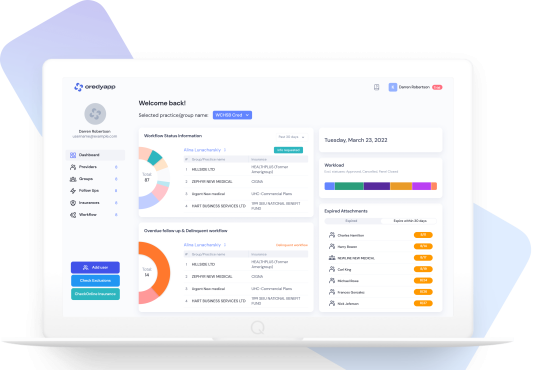
Microsoft Dynamics 365 is a powerful cloud-based ERP and CRM solution that has gained popularity among businesses of all sizes. It offers a wide range of functionalities that can help businesses to streamline their operations, enhance their productivity & improve.
However, implementing Dynamics 36 is a complex process that requires careful planning, execution, and post-implementation monitoring. In this in-depth analysis, we will explore the key factors that businesses need to consider when implementing Dynamics 365.
We will discuss the planning process, data migration, customization, training, testing, and post-implementation support.
By businesses will have a better understanding of the critical factors that contribute to the success of D365 implementation. They will be able to plan and execute their implementation projects more effectively and ensure a smooth transition to the new system. The implementation process is comparable to a free kick in a football game, where the player must correctly execute the kick to gain an advantage. If the kick is not executed correctly and no goal is scored, the team’s desired advantage may be lost.
Similarly, using Microsoft Dynamics 365 services is crucial for business growth and maximizing return on investment. A misstep during implementation could result in significant losses for the company and have a negative impact on its development. Hence it is essential for enterprises looking to implement Dynamics 365 services to partner with a seasoned Microsoft-certified consulting company for implementation.
According to the report by Grand View Research published in 2020, the global ERP software market, which includes Microsoft Dynamics 365, was valued. With all the hype and demand, it is evident that Dynamics 365 services are one of the greatest platforms for business solution providers; however, for the platform to work well, it is crucial to select the implementation partner carefully. Therefore, to streamline your process of selecting the best Microsoft Dynamics 365 implementation partner, we have created an article that will give you exact information about partners and enable you to make an informed decision. Let’s Move forward!
How to Choose Microsoft Dynamics 365 Implementation Partner?
D365 implementation can be challenging and calls for the ideal blend of technical proficiency, market knowledge, and project management abilities. As choosing the best implementation partner is a crucial choice that could significantly affect the outcome of your project.
When selecting an implementation partner, expertise is an important consideration. Find a partner who has an in-depth understanding of your sector and the Dynamics 365 modules you want. This will allow the partner to comprehend your specific business objectives and offer solutions tailored to your requirements.
Experience is yet another essential consideration. You want to collaborate with a partner with a track record of successfully implementing Dynamics 365. Ask for case studies, customer references, and testimonials to learn more about the partner’s expertise and success stories. Dynamics 365 should be able to be configured, customized, and integrated to meet your business processes and workflows if you work with a sound installation partner. Check to see if the partner has the technical know-how to create unique solutions that satisfy your needs. Additionally crucial are customization options.
A crucial component of your Dynamics 365 implementation’s long-term success is ongoing support and maintenance. Make sure the partner provides after-implementation support and maintenance services. This will assist you in maintaining the most recent version and optimal performance of your Dynamics 365 system.
For an implementation project to be successful, communication and teamwork are crucial. Find a partner who can offer frequent updates, criticism, and progress updates. Working with a partner who is prepared to cooperate with your team and communicate is ideal.Finally, while price should be considered, it shouldn’t be the only one. Compare costs across several implementation partners but bear in mind that the cheapest solution isn’t always the best. Focus on finding a partner who can provide the expertise, customized solutions you need to ensure a successful D365 implementation.
What Capabilities Should Dynamics 365 Implementation Partner have?
A Dynamics 365 platform partner should have excellent technical proficiency, including familiarity with the newest features and functionalities. Additionally, they must be familiar with the different third-party integrations and customizations.Your company’s industry should be well understood by your Dynamics 365 deployment partner. They should be able to assist you in utilizing Dynamics 365 to optimize your business procedures and offer solutions catering to your sector’s demands. To guarantee that the implementation is finished on schedule, within budget, and according to the agreed-upon scope, the Dynamics 365 implementation partner should also possess good project management abilities. This entails developing a project plan, controlling deadlines, and making sure that all stakeholders are effectively communicated with.
Furthermore, Dynamics 365 implementation partners must be able to offer specialized solutions that satisfy your business needs. They should be capable of creating technical workflows, integrations, and reports to fulfill your requirements. The implementation partner should also offer thorough training and assistance to guarantee that your team can successfully utilize the Dynamics 365 platform after the implementation. Training on new features, advice on best practices, and continuous assistance resolving problems are all included. Throughout the implementation phase, the implementation partner should be able to collaborate with your team and effectively convey project updates, progress, and any problems. Additionally, the implementation partner should be able to guide you through the change management process, including helping you assess the impact of the new system on your business and employees and providing training and support to help your team transition to the new system.
How can Dynamics 365 Services Implementation Partners Help Organizations?
By leveraging the expertise and capabilities of a Dynamics 365 implementation partner, organizations can achieve a successful implementation that meets their unique business needs & drives growth and success.Overall, a Dynamics 365 implementation partner can help organizations achieve a successful implementation that streamlines business processes, improves productivity, enhances data management, improves customer service, and provides many other benefits. It’s essential to evaluate potential partners carefully to ensure they have the expertise & capabilities necessary to meet your business needs.
Wrapping Up –
Dynamics 365 implementation services providers can play a crucial role in helping organizations successfully implement the Dynamics 365 platform. By leveraging their expertise and capabilities, they can help streamline business processes, improve productivity, enhance data management, and provide many other benefits. Organizations should look for a partner with experience in your industry who can provide a scalable and flexible solution, has expertise in data migration and integration, and prioritizes customer service and satisfaction. By working with Dynamics 365 implementation partners, you can execute your business goal rightfully and meet your unique business needs.
In this discussion, we covered an in-depth analysis of the key factors that businesses need to consider when implementing D365. We discussed the planning process, data migration, customization, training, testing, and post-implementation support. Implemtenting D365 can provide businesses with a wide range of benefits, including streamlined operations, enhanced productivity, and improved customer engagement. However, it requires careful planning, execution, and ongoing monitoring to ensure a successful implementation project.
Conclusion: implementing Microsoft Dynamics 365 is a complex process that requires careful planning, execution, and ongoing monitoring. Businesses need to consider various factors, including data migration, customization, training, testing & post-implementation support, to ensure the success of their implementation projects. A well-planned implementation project can help businesses to streamline their operations, enhance their productivity, and improve customer engagement.
It can also provide valuable insights into their business processes, enabling them to make informed decisions and drive growth. By following the guidelines discussed in this in-depth analysis, businesses can ensure a smooth transition to Dynamics 365 . With proper planning and execution, Dynamics 365 can help businesses to stay competitive in today’s rapidly evolving business landscape.




